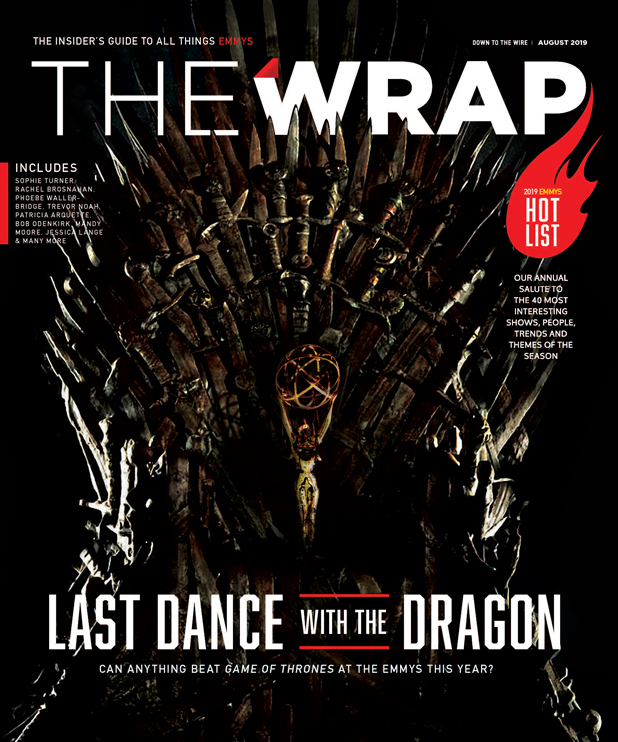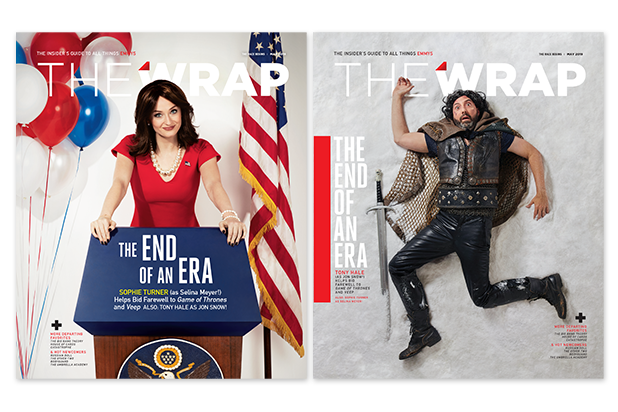This story about “Game of Thrones” first appeared in the Down to the Wire issue of TheWrap’s Emmy magazine.
You know how much some fans hated the eighth and final season of HBO’s fantasy series “Game of Thrones”? Well, that’s how much Emmy voters loved it. For all the gripes about the ways in which showrunners David Benioff and D.B. Weiss ended the saga based on George R.R. Martin’s series of novels, members of the Television Academy completely embraced the opportunity to give a royal sendoff to the program that was already the most-nominated and the winningest drama series in Emmy history.
Season 8 grabbed 32 nominations, smashing a 25-year-old record set by “NYPD Blue” and propelling HBO to the most nominations any network has ever received in a single year. “Game of Thrones” landed three of the six nominations for directing a drama series, three more for single-camera picture editing, plus single nominations in 15 other below-the-line categories. And the acting categories gave a clear picture of just how impressed voters were with what the show pulled off.
HBO submitted seven actors for Emmy consideration — Emilia Clarke and Kit Harington in the lead acting categories, and Peter Dinklage, Nikolaj Coster-Waldau, Lena Headey, Maisie Williams and Sophie Turner in supporting — and all seven were nominated. But five other “GoT” actors decided to submit themselves in the Emmy race (or let their reps submit them), and three of them were rewarded with nominations: Gwendoline Christie and Alfie Allen for supporting actress and actor and Carice van Houten for guest actress. Only two actors from the show, Pilou Asbaek and Richard Dormer, were on the Emmy ballot and didn’t land a nomination. “It feels like the most wonderful way to say goodbye to this incredible global phenomenon that has changed our lives more than we could imagine,” Christie said.
Also Read: Watch Out, ‘Game of Thrones’ – ‘NYPD Blue’ Once Set a Record and Then Got Ambushed at the Emmys
To celebrate the final Emmy dance for this monumental series, we went to the four actors who were nominated this year for the first time: Sophie Turner as Sansa Stark, who began the series as a naive young girl and suffered unimaginable horrors on her way to being crowned Queen of the North; Gwendoline Christie as Brienne of Tarth, a fierce warrior who won battles, lost her virginity to Coster-Waldau’s Jaime Lannister and became the first woman in Westeros to be made a knight; Alfie Allen as Theon Greyjoy, who betrayed the Stark family, endured a season of horrific torture and humiliation and eventually redeemed himself by defending the Starks to the death; and Carice van Houten as Melisandre, a mysterious priestess who foresees and helps engineer the fall of the Night King.
There are additional spoilers in these discussions — but you’ve already seen the last season, haven’t you?
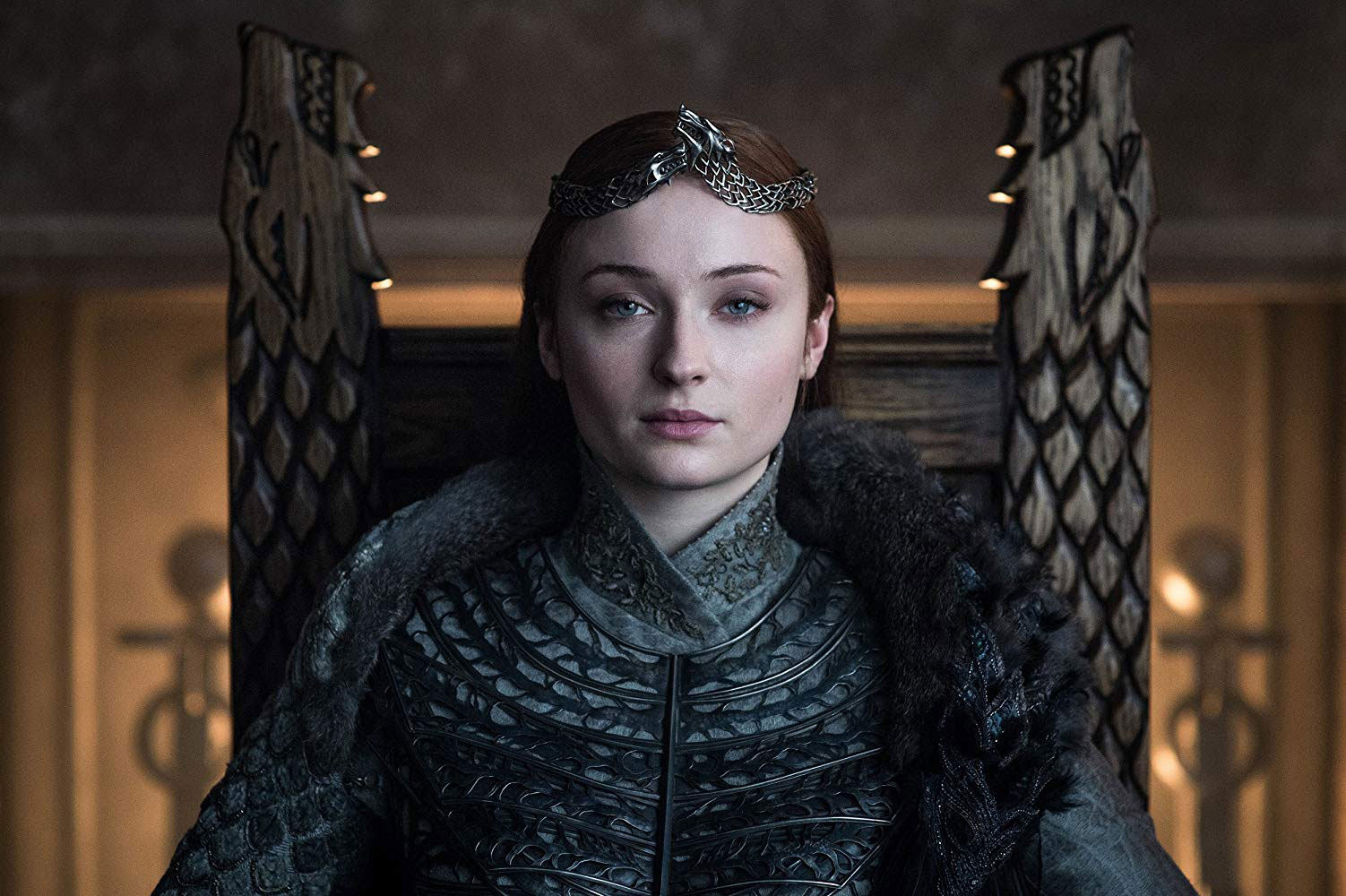
SOPHIE TURNER (Sansa Stark)
How crazy is it to be in a category where your show has four of the six nominees?
It’s unbelievable, to be honest. I had just kind of figured, “This is how it goes: Lena will be nominated in supporting and Emilia in lead.” I looked at the list and was blown away by the fact that there were so many of us nominated.
Obviously, the final season was controversial.
The fans are incredible and so loyal, and we love them because of the fact that they’re so, so passionate. I cannot fault them there. But when people were saying that there was no effort, that the writers were terrible … The most effort was put into this final season. We were shooting for an incredibly long time, nearly 11 months. We did the most night shoots anyone has done ever, I think. I felt a little defensive, and I think I’m entitled to feel like that.
After a season in which so many of the female characters really ran the show, were you OK with the Iron Throne going to a very passive male character, Bran?
I suppose it’s not really the Iron Throne anymore. [Laughs] I think it’s true what Tyrion was saying: Bran holds all of our stories, and we can’t move on unless we remember our history. Daeneyrs had to die. Cersei was a mad queen. Arya is too much of a free spirit. Sansa probably wouldn’t want to rule the seven kingdoms anyway — she wanted to stay in the North and defend the North. I really think Bran might be the perfect person for the job.
Also Read: Netflix Signs ‘Game of Thrones’ Creators David Benioff and DB Weiss to Overall Film and TV Deal
Did you have your own dream ending?
I thought Arya would kill Cersei. And I would like to have seen Sansa and Cersei reunited, or Arya and Cersei. But there were so many ways the story could have turned out. I felt very passionately about the ending for Sansa, and I was very happy with the ending that turned out for her.
As the final seasons went on, did you read scripts afraid that your character was going to die?
Of course! I think everyone was terrified of being axed the whole time. Every single page, it was like, “Oh, my God, is this it?” And then to find that I made it to the final episode and to the final scene was great.
When we talked three months ago, you said, “I don’t think I’ve done all my crying yet.” Still true?
I think the biggest moment is yet to come, when I really break down. I think it might be at the Emmys, because the Emmys are going to be the last time that we’ll ever see each other, at least as a cast. Or maybe I’ll never really say goodbye. It’s really my family, and because we love each other so much, it’ll be goodbye to the characters but not to each other.
Also Read: 2019 Emmy Contenders, From Sophie Turner to Tony Hale to Cicely Tyson (Exclusive Photos)
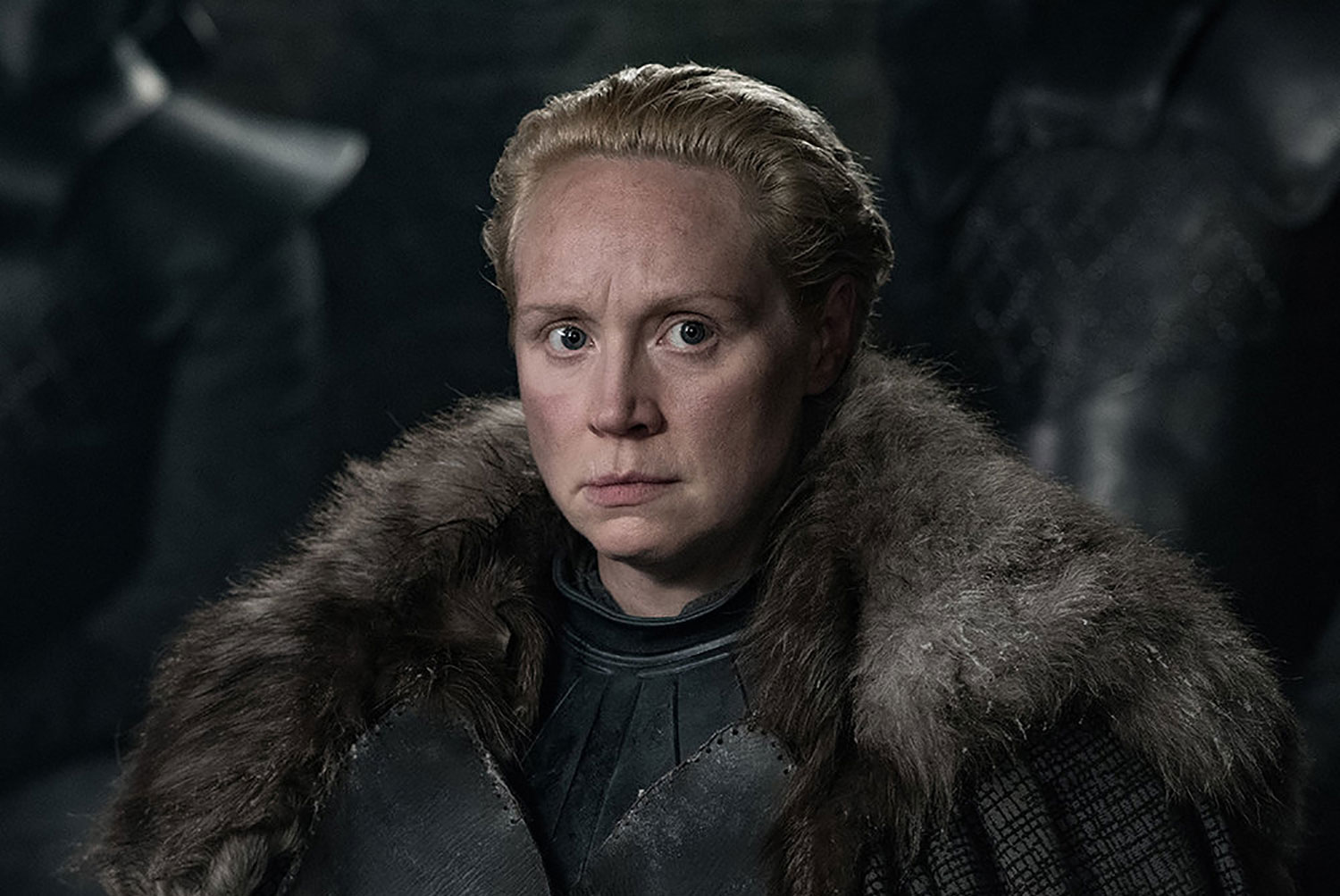
GWENDOLINE CHRISTIE (Brienne of Tarth)
Had you ever been submitted or submitted yourself to the Emmys before?
No, never. And I didn’t expect HBO to submit me. But as it was the last season, and particularly because of the relevance that I feel the character has in our society now, I wanted to do it. I’ve seen the number of women who come up to me and talk about how the character touched and empowered them. It’s not my natural place to put myself forward for things, and a lot of people, particularly women, find it difficult to do that. I just had to do it for me, and for my homage to the character.
Did you always feel that connection to her?
When I first Googled the character, I couldn’t believe she even existed. She’s a completely unconventional female character who works outside of the cruel realms of the patriarchal society that hates her because of who she is. I wanted to explore that role, because I was a woman who had to deal a lot with my shame over the way I looked, my androgyny, my height, the inconsistencies of my face, the scars on my face, my body type, my opinions that I felt too shy to put forward … It was important to me, but I truly did not expect people to take Brienne of Tarth to their hearts the way they had done.
One of the complaints we heard about the final season is that the scene in which Brienne breaks down crying as Jaime leaves to find Cersei is a betrayal of the strength of that character.
I was incredibly pleased to have that moment, because I think we see that Brienne has allowed herself to love someone. I don’t think there should be any thought that loving someone and being in pain when that person leaves her should be painted as a weakness, ever. She showed strength in every different area. Why shouldn’t she be allowed to be devastated?
The last season was particularly fantastic for me as an actor, because I felt that Brienne’s story was coming to a satisfying conclusion. She is knighted, and I love that that stepped outside the conventions of gender roles. I was pleased that she took the chance to explore a sexual world and be in control of that and for her to activate it. And I was delighted that at the end she fulfills her dreams.
Has “Game of Thrones” changed what you want to do from here? It certainly sets a high bar.
[Laughs] Yeah. I’ve learned that I do want to play different types of women, that women’s lives do deserve to be seen in our entertainment. And I want to delight in subverting form as long as I can.
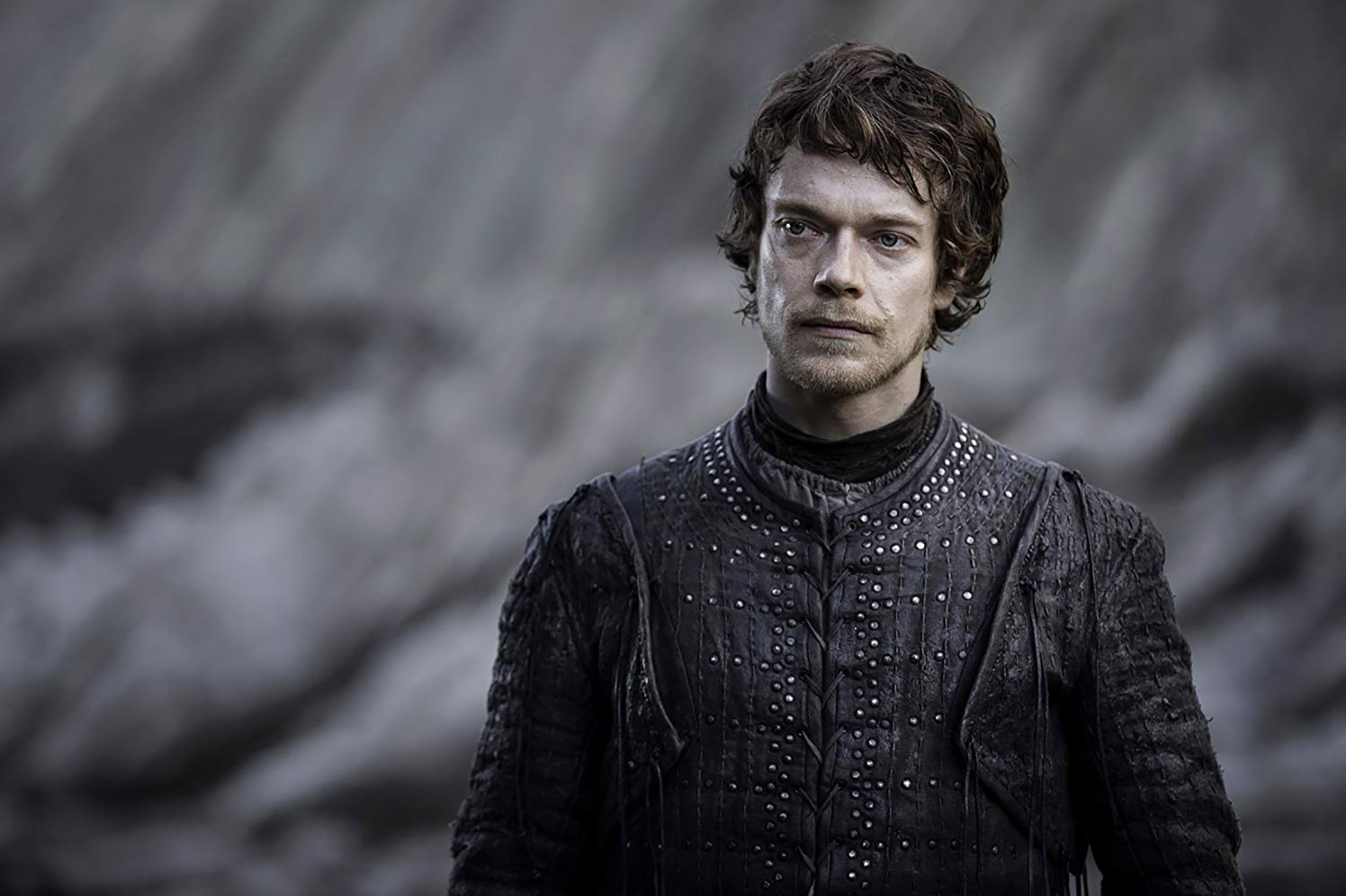
ALFIE ALLEN (Theon Greyjoy)
Why did you decide to submit yourself for Emmy consideration this year?
I had people advising me to do it, and it felt right. I really don’t know how the mechanics work, but it felt like the right time to do it. But I had no expectations whatsoever.
When you first got the part, did you have any sense of where Theon’s story was going?
I hadn’t heard much about the books before I started. I decided to read them, but then stopped reading about two-and-a-half or three books in. I decided I didn’t want to preempt stuff going forward. I did hear about Theon being taken to the dungeons and tortured, but it became a bigger thing in the show.
Was it rough filming the season where Theon was imprisoned and tortured by Ramsay Bolton (Iwan Rheon)?
As an actor, it was a really interesting thing to be able to get at. At times I felt strange and bizarre, but at the end of the day, Iwan and I would just go and play pool together. Sometimes we’d talk about it and sometimes not.
The final season drew lots of criticism, but Theon did have real moments of redemption.
Some people weren’t satisfied with how it ended, but it’s the same with a lot of these TV shows. But in terms of the arc of Theon, I hope people were happy with it. On the day I felt happy with it, and when I got to see it, I was thankful that Dan and David had given me that kind of stuff to do.
What was it like filming Theon’s final scene, in which he dies defending Bran Stark (Isaac Hempstead-Wright)?
It was great. There was a sense of camaraderie on the set, because it was in the midst of three or four weeks of night shoots. And to be there with Isaac, who was the person I did my first scene with in the first season, was great. As soon as I saw that, I was very, very happy. It was a slog, those night shoots, but it was great.
What effect has “Game of Thrones” had on your career and your life?
It’s been my 20s, really. I started it when I was 22, 23. And it’s definitely been life-changing, but at the same time it’s nice that I got this whole new set of friends through it. It’s been amazing.
Also Read: 2019 Emmy Contenders, From Sophie Turner to Tony Hale to Cicely Tyson (Exclusive Photos)
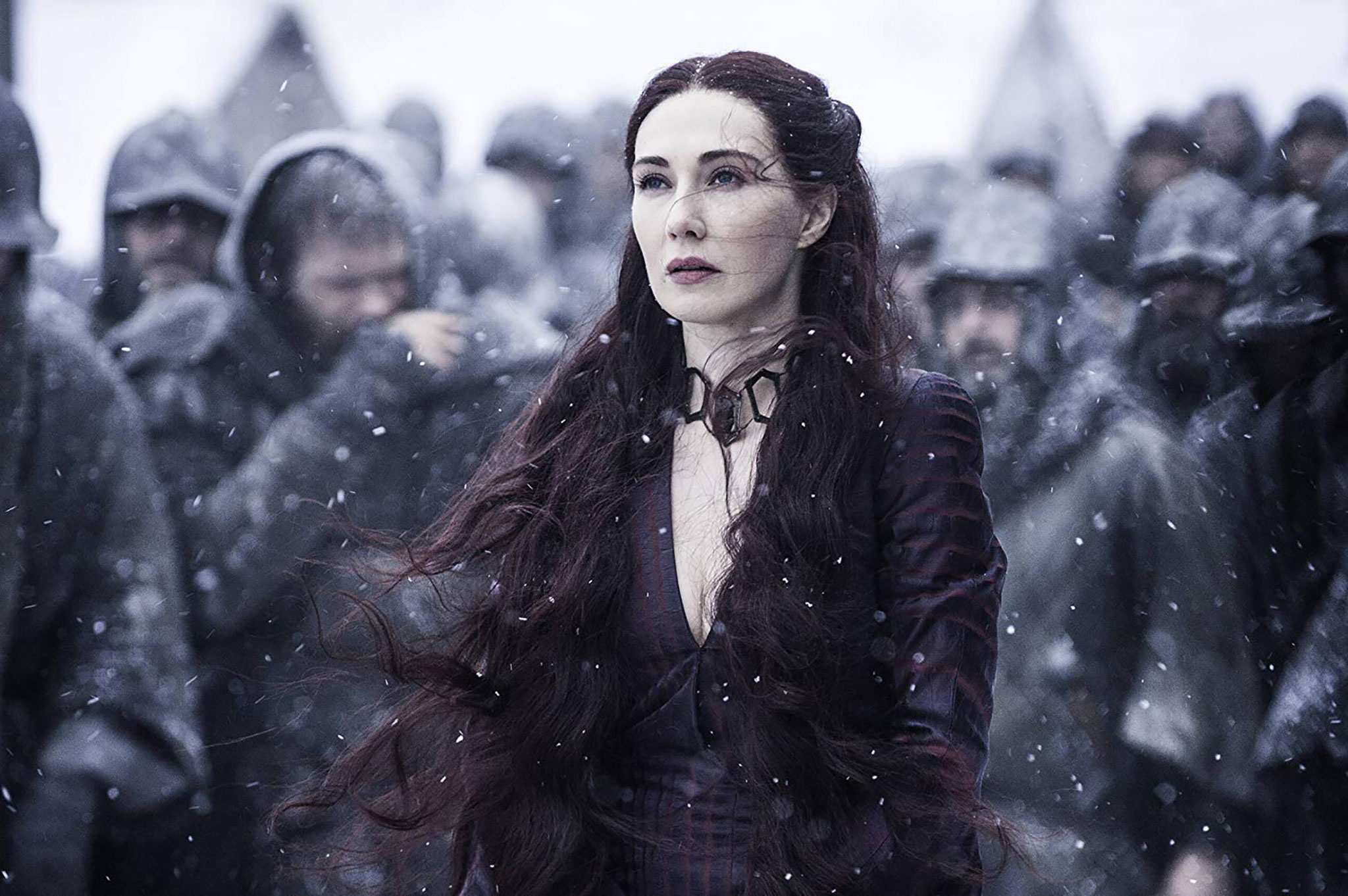
CARICE VAN HOUTEN (Melisandre)
Why did you decide to submit yourself for Emmy consideration this year?
That’s something that people talk about, submitting yourself. But it’s a team of representatives that come to you, and if they say, “Oh, we want to submit you,” then I’m not gonna say, “Don’t do it.” I said, “Of course, submit me,” but I literally laughed at them when they talked about it. And when it actually happened, I couldn’t believe it.
Were you pleased with the way your character ended her run on the show?
Even though it was a very limited amount of episodes — in fact, one episode — I was very, very happy with my ending. It gave me goosebumps when I read it, and it was the same when I saw it on screen. I thought it was a very elegant, beautiful ending to a bombastic, dark, violent episode. And I was very flattered that I was the last piano notes of a bombastic symphony.
Melisandre is very mysterious to the audience — we don’t really know what her past was, what powers she has or how accurate her predictions are. As someone who played her, did you know all that, or was she a mystery to you too?
I really like to figure everything out — that’s mostly how I work, and I ask a load of questions normally. But in this case that was really hard. There are books, but I didn’t want to trust in those, so I stuck to the scripts. But every time I wanted to know something about what was going to happen, they couldn’t tell me much. So she was quite a bit of a mystery to me as well. I learned to enjoy not knowing.
Is there anything you would like to have done in the final season that you didn’t get to do?
Ooh, there’s so many possibilities. I guess I would have been interested in learning about her past a little bit, but at the same time that’s what made her mysterious, that we only got little slivers of hints. I would have loved to have some sort of little scene with Cersei. I’m so curious what would have happened if those two women got together. That would have been an interesting meeting.
Read more of the Down to the Wire issue of TheWrap’s Emmy magazine.





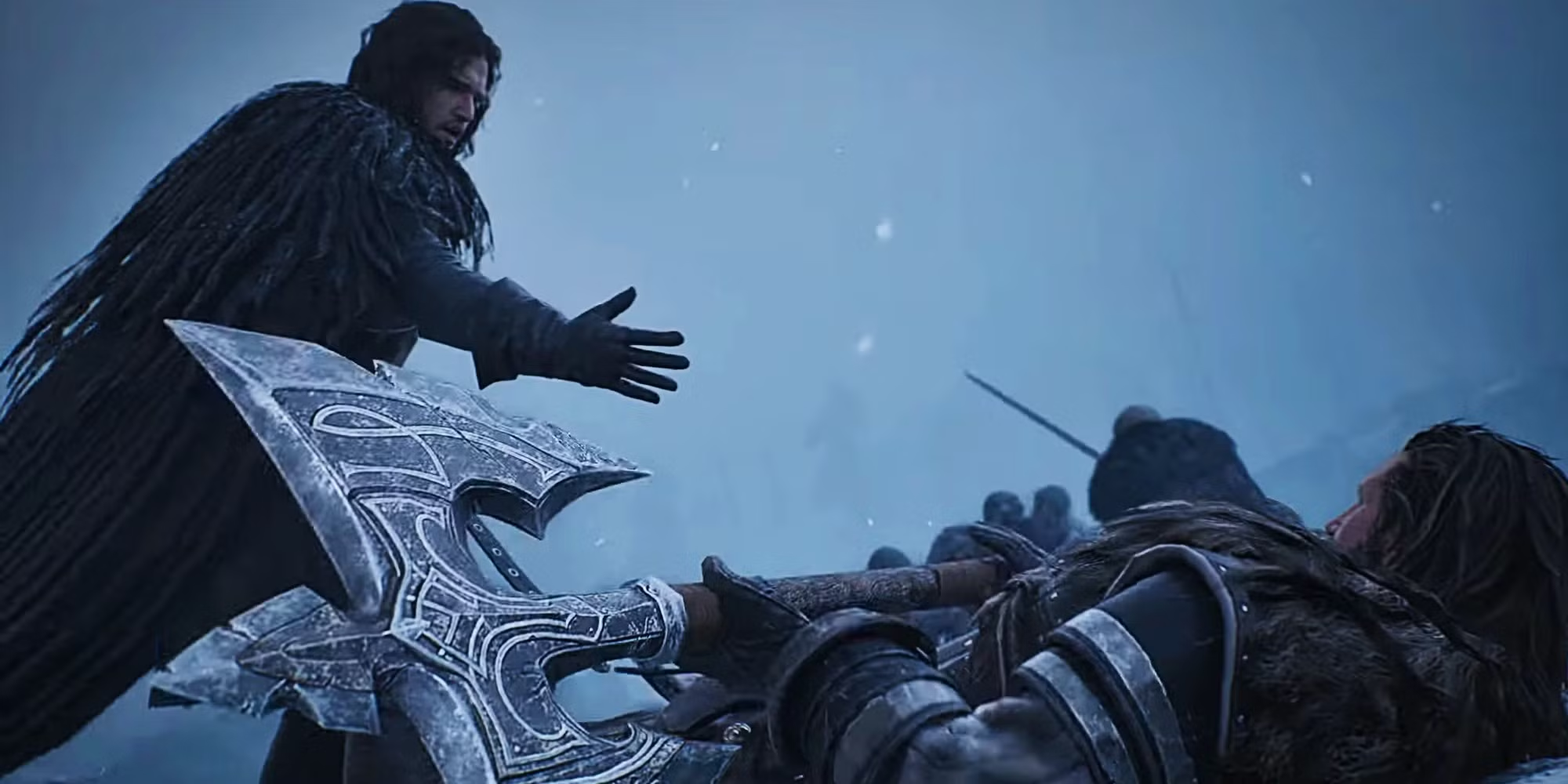














![[Book Review] The Blade Itself (The First Law Trilogy) by Joe Abercrombie](https://bendthekneegot.com/wp-content/uploads/2018/01/1516047103_maxresdefault-218x150.jpg)







